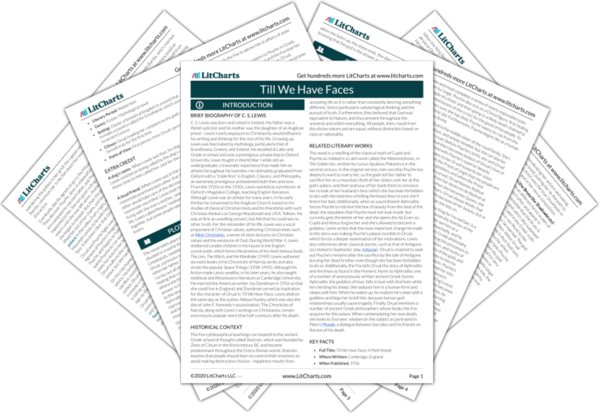The Veil
Orual’s veil represents her tendency to hide a part of her, not only from others, but also from herself. The King initially forces her to wear a veil to his wedding to hide her…
read analysis of The VeilFaces
The outward appearance of faces in this novel generally corresponds to the characters’ moral essences. Psyche’s moral perfection is reflected in her stunningly beautiful face. Orual’s face, on the other hand, is horribly…
read analysis of FacesThe Mirror
A mirror is conventionally an instrument with which one examines one’s face. Thus, in this book mirrors act as instruments of self-understanding, since faces represent one’s true self. Orual sees the face of Ungit…
read analysis of The MirrorThe Chains in the Well
After Psyche’s exile, Orual is haunted by the sound of the chains of the well moving in the wind, which sounds just like a girl crying in the garden. The chains act as a…
read analysis of The Chains in the WellUngit
Ungit represents the potential for jealous, devouring love that lies within all mortals. Although she is worshipped as a god in Glome, the Fox does not acknowledge her as one of the “true gods” at…
read analysis of Ungit
The Palace on the Mountain
As a child, Psyche dreams of one day living in a palace on the Grey Mountain, which she later sees as a sign that she has always been destined to go there as a sacrifice…
read analysis of The Palace on the Mountain






